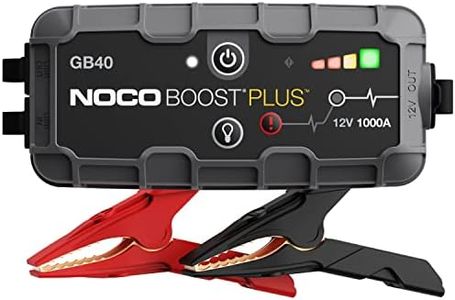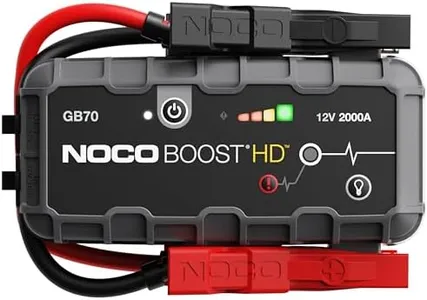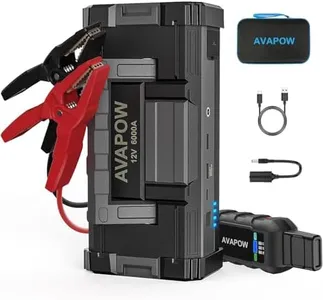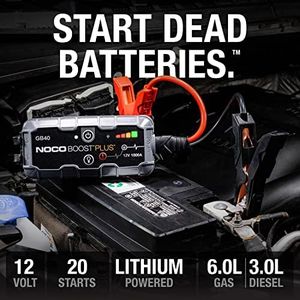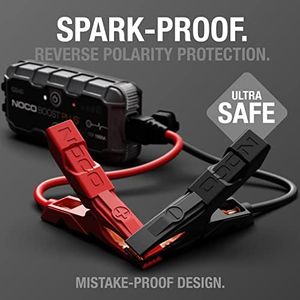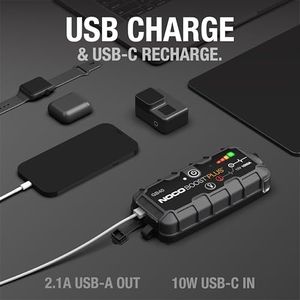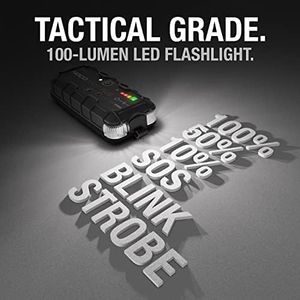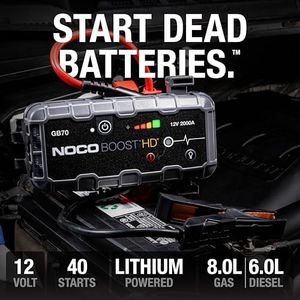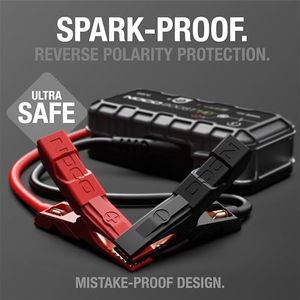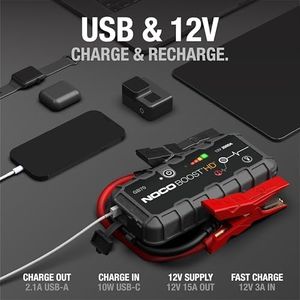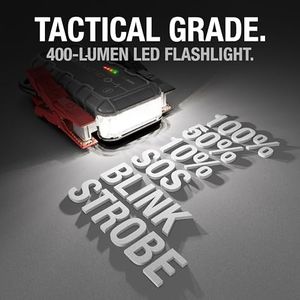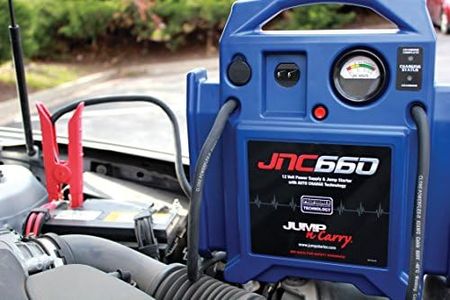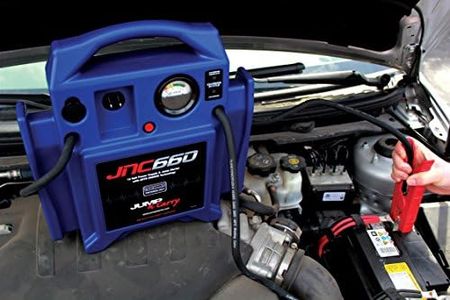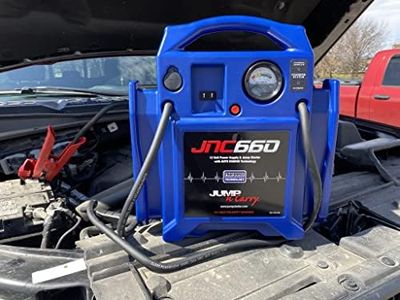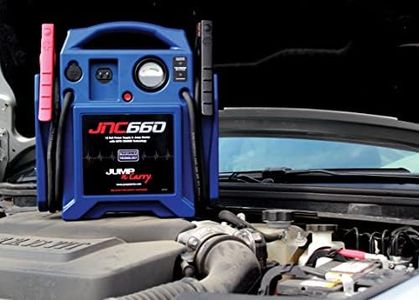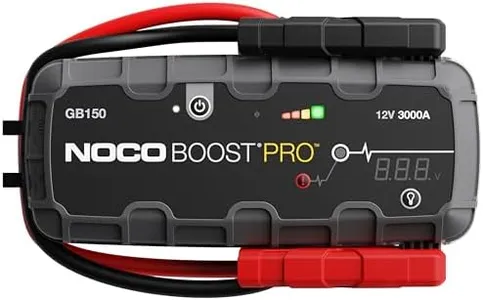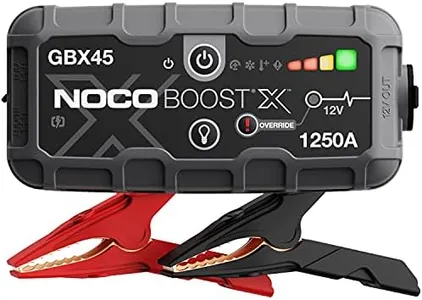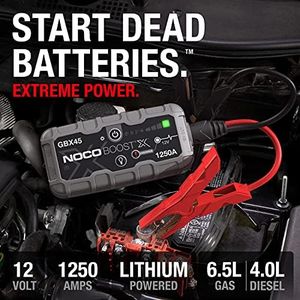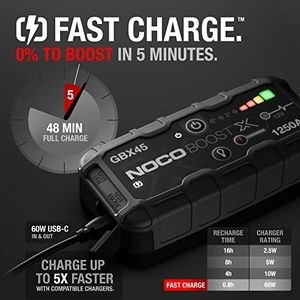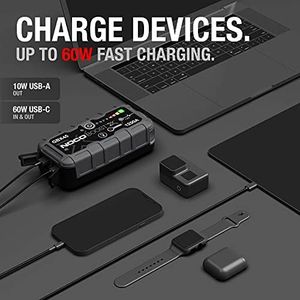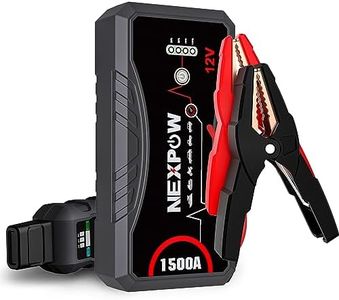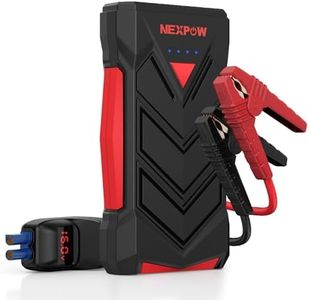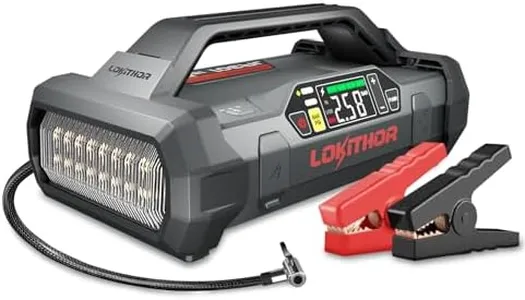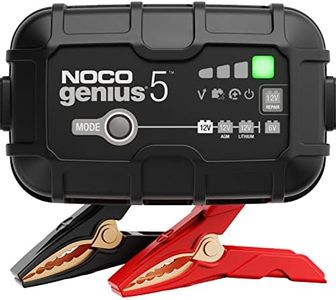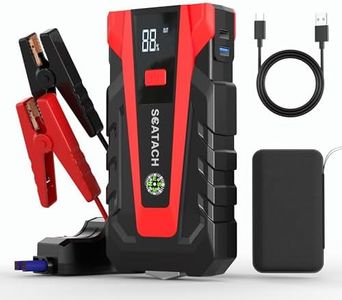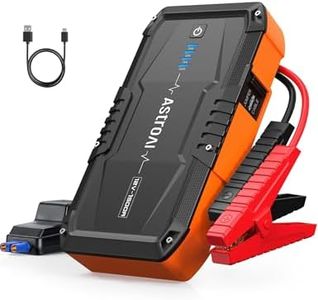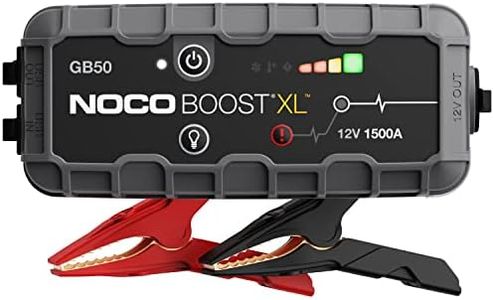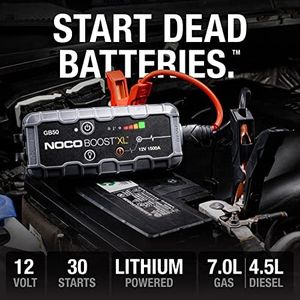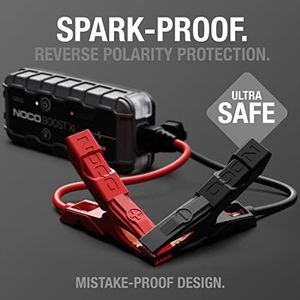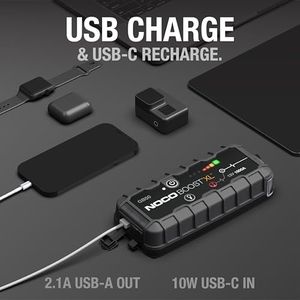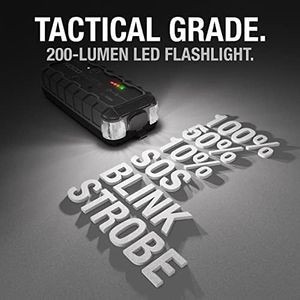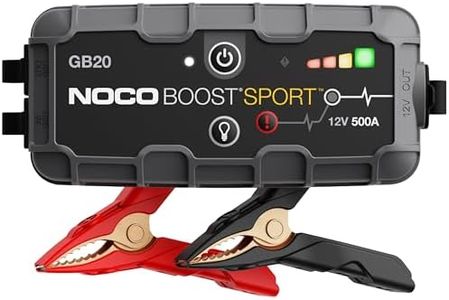10 Best Portable Car Battery Chargers 2025 in the United States
Winner
NOCO Boost Plus GB40 1000A UltraSafe Car Battery Jump Starter, 12V Jump Starter Battery Pack, Battery Booster, Jump Box, Portable Charger and Jumper Cables for 6.0L Gasoline and 3.0L Diesel Engines
The NOCO Boost Plus GB40 is a powerful, compact portable car battery charger that offers up to 1000 amps of peak output current, making it capable of jump-starting gasoline engines up to 6.0 liters and diesel engines up to 3.0 liters. A key strength is its UltraSafe design, which includes spark-proof technology and reverse polarity protection, ensuring safe and mistake-proof connections.
Most important from
112719 reviews
NOCO Boost HD GB70 2000A UltraSafe Car Battery Jump Starter, 12V Battery Booster Pack, Jump Box, Portable Charger and Jumper Cables for 8.0L Gasoline and 6.0L Diesel Engines
The NOCO Boost HD GB70 is a powerful and versatile portable car battery charger. With a peak output of 2000 amps, it can jump start dead batteries in gasoline engines up to 8.0 liters and diesel engines up to 6.0 liters. It's highly portable, weighing just 5 pounds and featuring a compact design, making it easy to store and carry.
Most important from
27258 reviews
Clore Automotive Jump-N-Carry JNC660 1700 Peak Amp 12 Volt Jump Starter , Blue
The Clore Automotive Jump-N-Carry JNC660 is a robust jump starter with 1700 peak amps and 425 cranking amps, making it powerful enough to handle demanding jump-start tasks, including those in extremely cold weather. Its 22Ah Clore PROFORMER Battery ensures reliable performance and durability. The heavy-duty clamps and 46-inch #2 AWG cables enhance its efficiency in transferring power to your vehicle's battery.
Most important from
18190 reviews
Top 10 Best Portable Car Battery Chargers 2025 in the United States
Winner
9.7 score
NOCO Boost Plus GB40 1000A UltraSafe Car Battery Jump Starter, 12V Jump Starter Battery Pack, Battery Booster, Jump Box, Portable Charger and Jumper Cables for 6.0L Gasoline and 3.0L Diesel Engines
NOCO Boost Plus GB40 1000A UltraSafe Car Battery Jump Starter, 12V Jump Starter Battery Pack, Battery Booster, Jump Box, Portable Charger and Jumper Cables for 6.0L Gasoline and 3.0L Diesel Engines
Chosen by 1103 this week
NOCO Boost HD GB70 2000A UltraSafe Car Battery Jump Starter, 12V Battery Booster Pack, Jump Box, Portable Charger and Jumper Cables for 8.0L Gasoline and 6.0L Diesel Engines
NOCO Boost HD GB70 2000A UltraSafe Car Battery Jump Starter, 12V Battery Booster Pack, Jump Box, Portable Charger and Jumper Cables for 8.0L Gasoline and 6.0L Diesel Engines
Clore Automotive Jump-N-Carry JNC660 1700 Peak Amp 12 Volt Jump Starter , Blue
Clore Automotive Jump-N-Carry JNC660 1700 Peak Amp 12 Volt Jump Starter , Blue
NOCO Boost Pro GB150 3000A UltraSafe Car Battery Jump Starter, 12V Battery Pack, Battery Booster, Jump Box, Portable Charger and Jumper Cables for 9.0L Gasoline and 7.0L Diesel Engines
NOCO Boost Pro GB150 3000A UltraSafe Car Battery Jump Starter, 12V Battery Pack, Battery Booster, Jump Box, Portable Charger and Jumper Cables for 9.0L Gasoline and 7.0L Diesel Engines
Our technology thoroughly searches through the online shopping world, reviewing hundreds of sites. We then process and analyze this information, updating in real-time to bring you the latest top-rated products. This way, you always get the best and most current options available.

